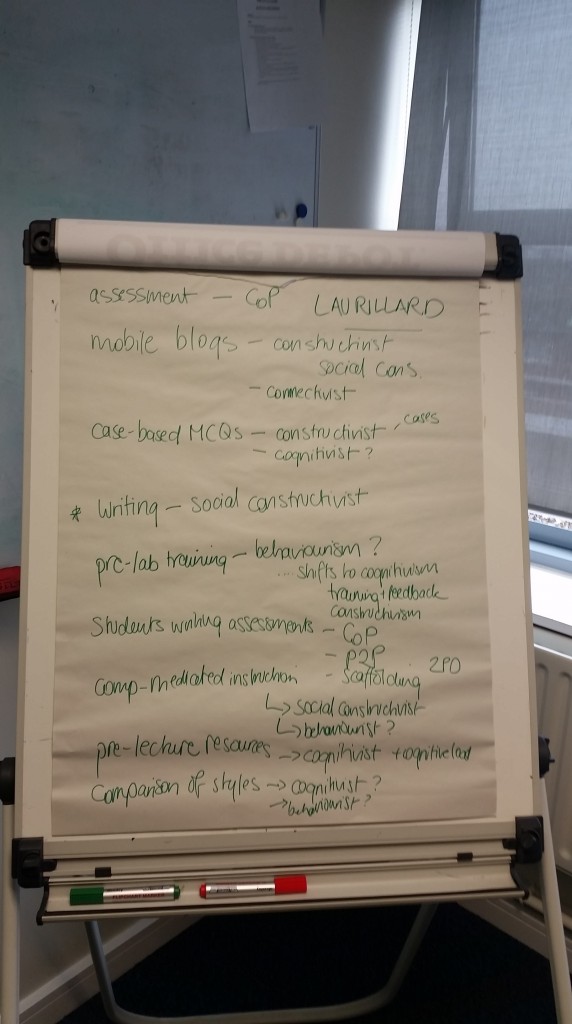The following is a reflection on Week 4 of the Learning Theories module using Gibbs Reflective Cycle.
Discussion
Today we had a flipped class. As noted by Bergmann and Sams the concept of a flipped classroom is ‘that which is traditionally done in class is now done at home, and that which is traditionally done as homework is now completed in class’ (Bergmann and Sams, 2012, p.12). Today we had to review current literature and partake in a debate on Without theory, experience has no meaning. We were asked to prepare for this debate prior to the class looking at the for and against.
Today we had a flipped class. This is a new instructional method for me and from studying the different theories can see the link between it and the constructivist and social constructivist theories. As noted by Bergmann and Sams the concept of a flipped classroom is ‘that which is traditionally done in class is now done at home, and that which is traditionally done as homework is now completed in class’ (Bergmann and Sams, 2012, p.12).
Feelings
A flipped classroom is a new instructional method for me and from studying the different theories can see the link between it and the constructivist and social constructivist theories. I feel that it will be a useful strategy to use to ensure that the learners engage in the subject matter.
Evaluation
The flipped classroom and debate was a clever way to promote collaboration and to hear different perspectives. I will definitely implement this into my own practice.
Analysis
I was in the group that was for this and some interesting topics came into perspective e.g. we need both. When preparing for the debate I researched some documentation where in fact most were in favour of theory e.g. to move forward theory is needed in order to build knowledge by revising existing knowledge and extending it Neef, Siesfeld & Cefola, 1998). However, the opposing team made a very good attempt to substantiate experience over theory.
On reflection, I have learned that I am incorporating elements of behaviourism and constructivism but not wholly. Furthermore, connectivism is another theory which I am very interested in as it is associated with technology. We also discussed strategies and matched them with the appropriate learning theory. It is evident that some relate to more than one theory as illustrated below.
Conclusion
Flipped classrooms are a method where students are given the information beforehand to research and it is then discussed in the classroom. Our lecture today was a flipped classroom where we had to prepare for a debate. This ensured that we engaged with the information beforehand and the discussions reinforced the learning.
Furthermore, our discussion on strategies illustrated that one strategy could be used in more than one learning theory. For example, mobile blogs relate to constructivism, social constructivism and connectivism.
Action Plan
I will implement this into my own practice as I can see how beneficial it can be for the autonomous adult learner.
References:
Bergmann, J., & Sams, A. (2012). Flip your classroom: Reach every student in every class every day. International Society for Technology in Education.
Neef, D., Siesfeld, G. A., & Cefola, J. (1998). The economic impact of knowledge. Routledge.
